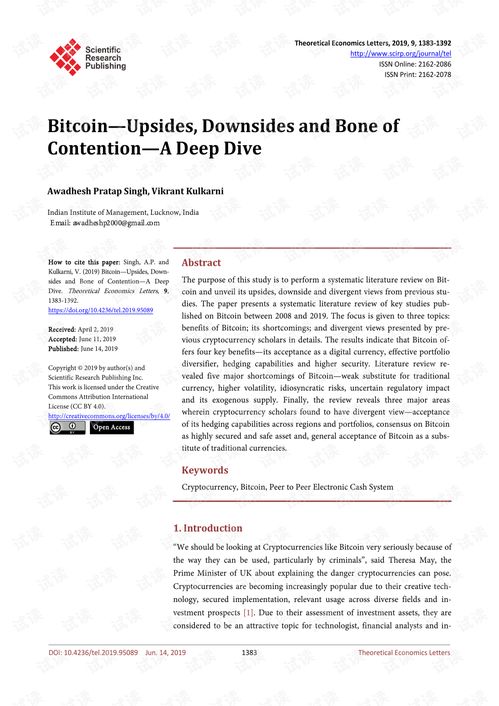来源:小编 更新:2025-01-16 04:57:19
用手机看
The Pros and Cons of Bitcoin: A Comprehensive Analysis
In the ever-evolving world of digital currencies, Bitcoin stands out as a beacon of innovation and freedom. But what exactly makes this virtual currency so appealing? Let's delve into the multifaceted advantages of Bitcoin and explore its potential drawbacks.

One of the most compelling reasons to invest in Bitcoin is its decentralized nature. Unlike traditional currencies issued by central banks, Bitcoin operates on a peer-to-peer network without any central authority. This decentralization ensures that no single entity has control over the entire blockchain, making it highly resistant to censorship and manipulation.
Security is another critical aspect of Bitcoin's appeal. The blockchain technology behind Bitcoin is incredibly secure, using advanced cryptographic techniques to protect transactions and data. Each transaction is recorded in a public ledger, known as the blockchain, which is constantly monitored by a network of computers. This transparency and security make it extremely difficult for hackers to compromise the integrity of the system.

Bitcoin offers a high degree of anonymity, allowing users to transact without revealing their identity. While it's true that all transactions are public, the privacy of the individuals involved is maintained through a process called mixing. This means that the transaction history of each user is obfuscated, making it difficult to trace their financial activities.
Moreover, Bitcoin is a globally recognized form of currency. It can be used in almost any country without the need for conversion, making it a versatile option for international trade and investment. This global usability is further enhanced by the increasing acceptance of Bitcoin by businesses and governments around the world.

Traditional banking systems often come with hefty fees for international transfers, currency conversions, and other financial operations. In contrast, Bitcoin transactions typically have very low fees, making it an economical choice for those looking to send or receive money across borders.
This characteristic of Bitcoin is particularly beneficial for individuals and businesses that frequently engage in cross-border transactions. By using Bitcoin, they can save on these costs, making it a cost-effective solution for global finance.
The value of Bitcoin has been on a steady rise over the past decade, driven by increasing adoption and demand from investors. This potential for appreciation makes Bitcoin an attractive investment option for those looking to diversify their portfolios.
Investors have also found success in trading Bitcoin, with some individuals becoming quite wealthy through their investments in this digital currency. However, it's important to note that the cryptocurrency market is highly volatile, and there is always the risk of losing money. As with any investment, it's crucial to conduct thorough research and consider your own financial situation before investing in Bitcoin.
Inflation is a significant concern for many countries, leading to a decline in the purchasing power of money over time. Bitcoin, on the other hand, is not subject to inflation, as its supply is limited to 21 million units. This fixed supply makes Bitcoin a hedge against inflation, as its value is not affected by the increasing amount of money being printed by central banks.
As global inflation rates continue to rise, the importance of Bitcoin as a store of value and a hedge against inflation becomes increasingly evident. This characteristic positions Bitcoin as a compelling option for investors seeking to protect their wealth in an inflationary environment.
Bitcoin is a revolutionary digital currency that offers numerous advantages over traditional forms of money. Its decentralized nature, security, anonymity, low transaction fees, and potential for investment value make it a compelling option for individuals and businesses alike. However, it's important to recognize the risks associated with Bitcoin, such as its high volatility and the potential for fraud. By understanding both the pros and cons of Bitcoin, you can make informed decisions about whether it's a good fit for your financial future.